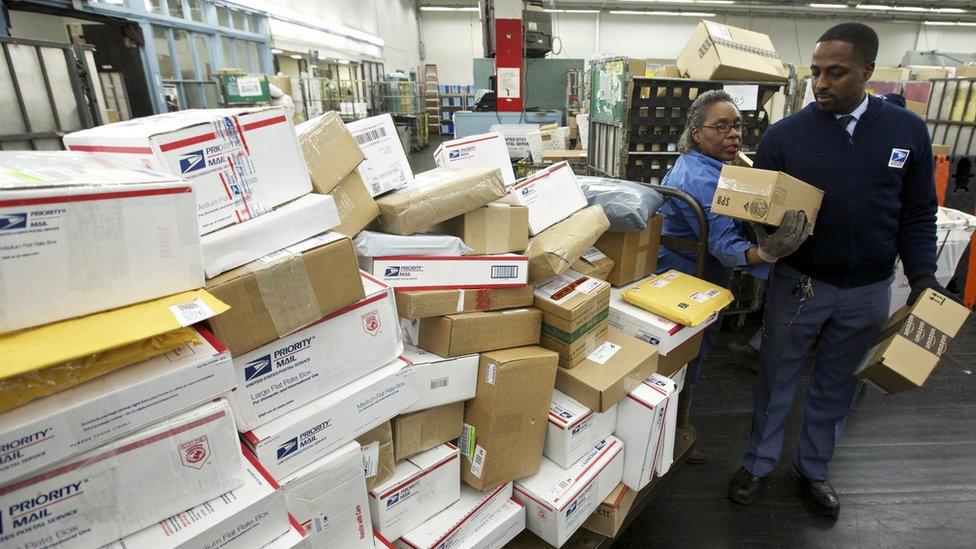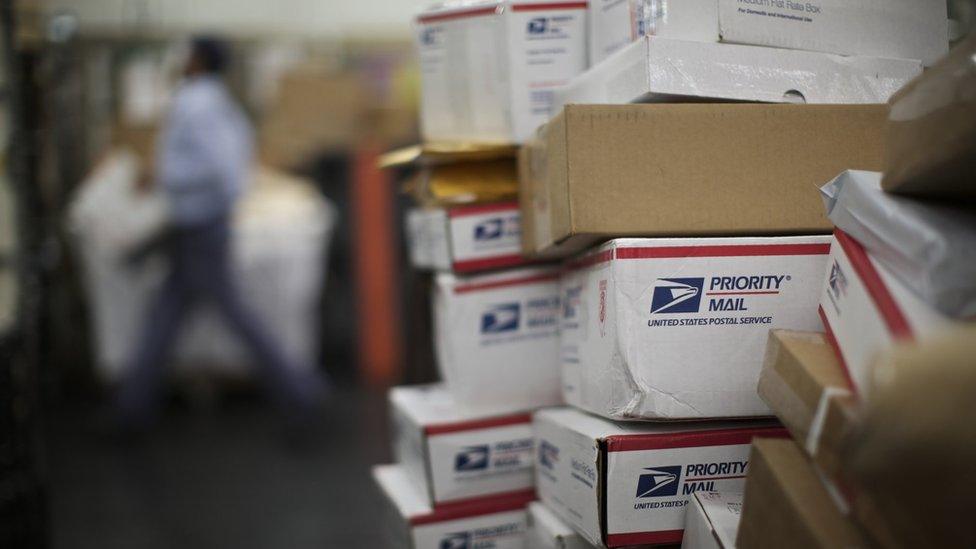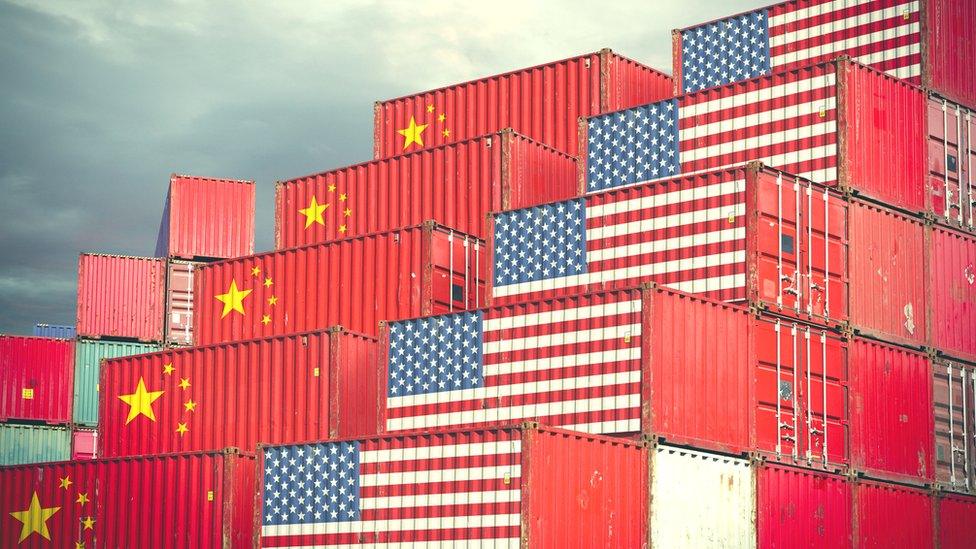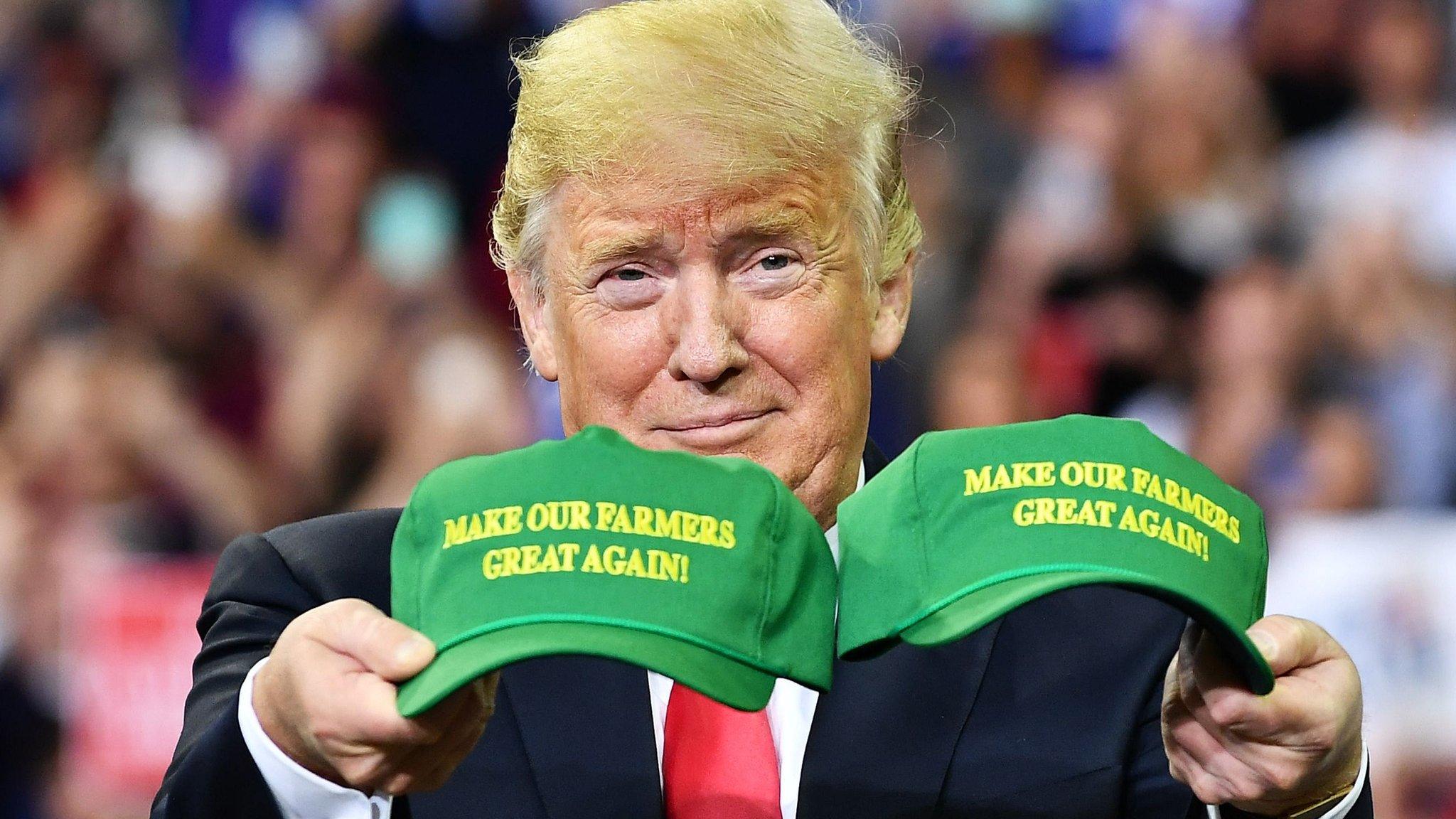Trump moves to quit 144-year-old postal treaty
- Published

The US says the system for global postage charges puts the US at a disadvantage
The US has announced plans to withdraw from a 144-year-old postal treaty, which the White House says lets China ship goods at unfairly low prices.
Under the treaty, a UN body sets lower international rates for packages from certain countries, a move originally designed to support poorer nations.
But the US says the discounts put American businesses at a disadvantage.
Officials said they hoped the notice of withdrawal would set the stage to agree a better deal.
"We're looking for a fair system," a senior administration official told reporters. "We do hope that ultimately we achieve a negotiated outcome."
The BBC's Asia business correspondent Karishma Vaswani says the move to pull out of the treaty is aimed at forcing the Chinese to give up the developing nation status they had when they first entered the pact back in 1969.
How does the system currently work?
International mailing rates are governed by the Universal Postal Union (UPU), a unit of the United Nations that traces its roots back to the 1870s.
It subsidises shipments from developing countries while setting higher rates for wealthier nations, including the US.
But the White House said China - a major global exporter - was now the biggest beneficiary of that system.
The US wants changes to the postal treaty to allow countries to set their own rates for parcels weighing under 2kg (4.4lbs). They are already allowed to do so for bigger packages.
The rise of international online shopping has led to a huge increase in the number of small parcels being sent via the postal system.
American firms say it can cost significantly more to post an item within the US than it does to send the same item to the US from China.
What is the US argument?
The bid to overhaul the treaty is part of US President Donald Trump's combative "America First" approach to trade, which has led to tariffs on billions of dollars in goods, attacks on existing trade treaties and criticism of multilateral agreements.
He has frequently singled out China, which exports more goods to the US than any other country.
Officials said the discounts strain the finances of the US Postal Service, facilitate the shipment of counterfeit goods and distort pricing within the US, leading to higher fees for domestic companies.
Due to lower rates, foreign packages cost the US about $300m (£228.5m) each year, according to administration estimates.

The process of withdrawing from the treaty takes at least a year and the White House said it would be willing to remain in the UPU if negotiations were successful.
The US Postal Service and companies such as Amazon and FedEx have complained about the discounts for foreign shippers for many years.
- Published9 October 2018

- Published31 August 2018
